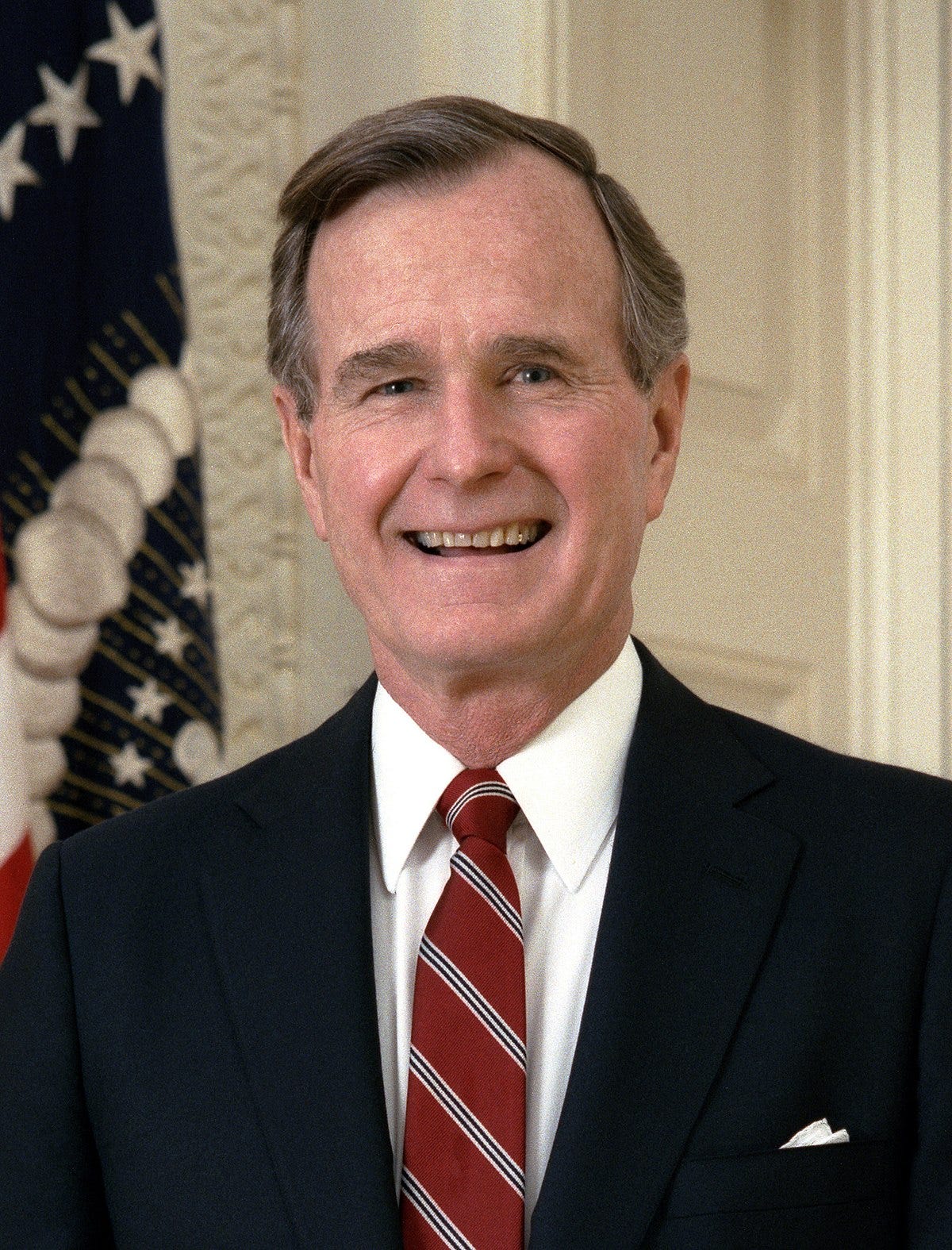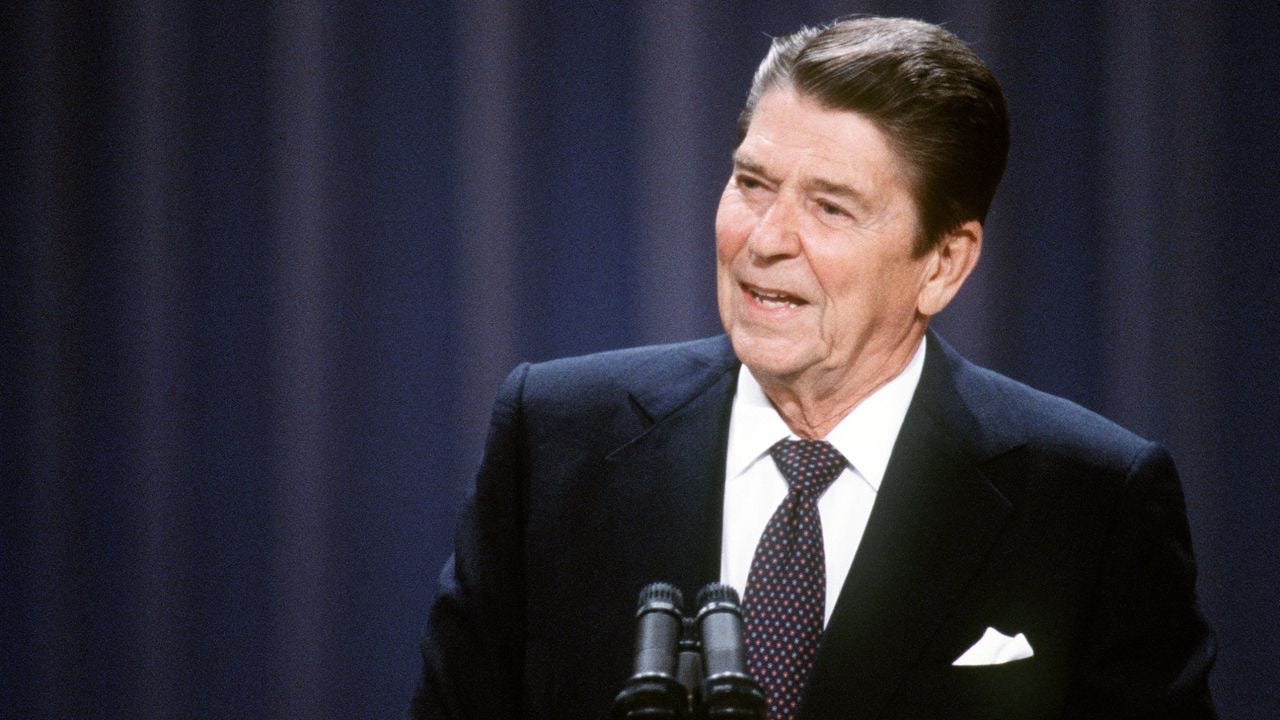Book Review: Timothy Naftali's George H. W. Bush
[Trivia: The Pritzker Prize and the Fields Medal are considered the “Nobel Prize” for which two different fields of achievement (neither or which have an actual Nobel Prize)?]
Timothy Naftali’s George H. W. Bush (2007), an entry in a series of presidential biographies, is a really strange read.
The book hits all the notes you’d expect it to, covering President 41’s life in chronological fashion and recapping his family background, youth, early experience in electoral politics, time being shuffled between the UN, China, and the CIA, and finally riding Reagan’s coattails to the White House. I’ll add that it’s written lucidly if not vividly.
The strangest thing is this book’s political angle. This book has a long shadow cast over it by former president Richard Nixon, with his continued correspondence with Bush 41 recurring throughout the latter’s career. We are treated to Richard Nixon chiming in with his thoughts on Bush’s presidential election, Bush’s summit with then-USSR-leader Mikhail Gorbachev in Malta, the repression in Lithuania, H. Ross Perot’s candidacy in the 1992 presidential election, and Bush’s fateful decision to raise taxes. Learning from the book jacket that the author (Naftali) was in fact the first director of Richard Nixon’s presidential library cast a ton of light on the situation.
But worse than the kid glove-treatment given Nixon was the treatment given the axis of Bush-Reagan relations. To hear Naftali tell it, Bush’s denouncement of Reagan’s free market vision during their 1980 primary battles as “voodoo economics” reflected a lasting belief and refusal to buy into that vision, or the insistence on lower taxes and decreasing budget deficits mandated by Reagan era-laws.
The problem is that Naftali wants to have it both ways. On the one hand, Naftali would have us believe that Bush was a seasoned realist who never bought into unsustainable Laffer-curve dreams about cutting tax rates while cutting federal spending and also making more in tax revenue.
On the other hand, the more circumspect and steadfast Bush is supposed to be, the more inexcusable is his central campaign pledge. Bush’s unmistakable claim—“Read My Lips: No New Taxes”—was made during the early and crucial primary in Live-Free-or-Die New Hampshire. It clinched his win there after an embarrassing 3rd-place finish in Iowa and perhaps a necessary pledge for his ticket to the White House in 1988. For that matter, while we remember those six words, watching his entire spiel mounting up to that is, in hindsight, galling:
And I'm the one who will not raise taxes. My opponent now says he'll raise them as a last resort, or a third resort. But when a politician talks like that, you know that's one resort he'll be checking into. My opponent won't rule out raising taxes. But I will. And the Congress will push me to raise taxes and I'll say no. And they'll push, and I'll say no, and they'll push again, and I'll say, to them, "Read my lips: no new taxes."
George Bush the politician, ladies and gents.
The entire point of the pledge was to secure him the nomination and to eliminate any doubt that he would raise taxes. If we’re supposed to believe that Bush was wise and realistic enough to understand that they were going to have to be raised eventually, then there’s no capacity for anything but scorn at a politician who forcibly and explicitly promised to not do one specific thing that he then did. This is all weirder, perhaps, given this book’s complete willingness to critique Bush in other areas, harshly relating his process of selecting a VP, his optical errors, his poor re-election strategy, etc.
That’s the subtler repudiation of Reagan. The book depicts Bush’s big-government term as one of cleaning up Reagan’s messes. The third chapter is literally entitled “Cleaning Up Reagan’s Mess.” In case you forget, it’s also the note that the book ends on, with the author noting that many wished W’s administration could have someone come “to clean up his son’s mess in Washington as he had once done for Ronald Reagan.” Reagan’s legacy of messes is supposed to include not only Nicaragua and the budget but the Strategic Defense Initiative, “dreams” of a nuclear weapons-free world, the AIDS crisis, and acid rain. It’s quite the ax to grind, although there is something fitting about even this biography being swallowed up in the shadow of Ronald Reagan.
~
Answer: The Pritzker is “the Nobel Prize of Architecture” and the Fields is “the Nobel Prize of Mathematics.” Yes, the Pritzker is named after the ultra-rich family of the current governor of Illinois (pictured), whose great-uncle endowed the prize and whose money definitely meant nothing in Illinois politics.





